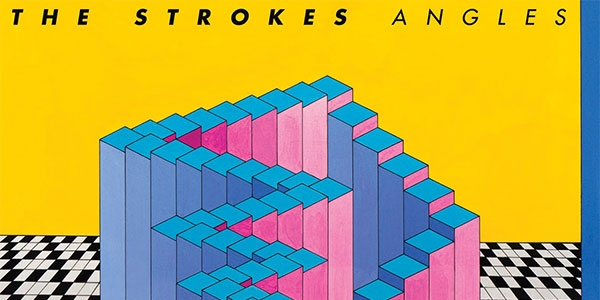Theirs has always been a curious case: with debut Is This It being the spear-tip of rock ‘n’ roll’s early-‘00s resurrection, Room On Fire’s cookie-cutter approach alienated the fly-by-night fans, before First Impressions Of Earth found the band finally stretching out musically, and, in part, it helped in reclaiming some of their legacy. The biggest problem is that, like a musical version of Ted Danson beyond Cheers, they’ve struggled to understand that legacy and build on it. They helped found a movement – if even not perhaps by choice – but it was clear that they didn’t want the responsibility for it, or anything beyond it in the greater sense.
What The Strokes are now happens to be simply a collection of egregious egos who, on the odd occasion, make music together and don’t particularly seem to enjoy it, rather than what they could’ve been, namely, a band for the ages, one that would help define a musical generation. That’s not a knock on them either, they didn’t anoint themselves the saviours of rock: we did. Subsequently, the last eight years of The Strokes career has been them struggling with their own identity, and what they, as a band, wanted to achieve artistically. The problem has been with us judging their inability live up to our expectations of what we wanted them to be, not what they were.
Which is why they present such a unique musical proposal: The Strokes will always be judged by their own past as, regardless of their achievements since, and what they may accomplish in the future, whatever they do will never again have the resonance of Is This It – which could turn out to be one of the greatest, most prophetic epitaphs in musical history. Indeed, that they’ve been held on such a pedestal since 2001, and still command such loyalty among fans and such continual critical reverence, is testament to that initial impact. Much like Pearl Jam beyond 1993, or the situation that Quentin Tarantino faced post-Reservoir Dogs and Pulp Fiction, or Oasis after Morning Glory, and countless others before and since; when you create art that defines a time, or kicks off a ‘movement’, it’s the scant few who can live up to their own historical status. You can chase acceptance, or you can say ‘balls to that, I’ll do what I want’.
History is littered with the idealised artistic corpses of those who couldn’t deal with the expectation and didn’t adapt or find a higher meaning. The Smiths. Television. The Velvet Underground. The Sex Pistols. Guns N’ Roses. The Stone Roses. Black Eyed Peas. Well, maybe not so much will.i.am and Fergie’s merry band of donkey cocks.
Which is all a nice way of saying that Angles is good, not great.
The Strokes created and lived up to a persona – both personally and musically – of detached, New York rock ‘n’ roll cool. That doesn’t lend itself, as in real life, to career longevity however, as an audience respond to what they perceive to be relatable. Casablancas’ initial salvos of “I don’t care’s” bemoaning fleeting love and nostalgia in a modern age and detailing what happened the previous evening were significant for that moment in time, but to stretch those sentiments out across another three albums will always serve to keep an audience at arms length and slightly disconnected. And it has.
Which is why the sheer coldness of Angles is its most off-putting aspect. We’ve come to expect the usual Strokes blueprint of precise work from messers Hammond Jr, Fraiture, Valensi and Moretti, overlaid with the cool, laissez faire mumble of Casablancas. But First Impressions Of Earth – as well as each of their ‘meh’-worthy side-project releases – have all hinted at more of a relatability to The Strokes, but outside of Metabolism’s “I wanna be outrageous / But inside I know I’m plain / So plain,” or Call Me Back’s impressive sense of melancholia, there’s precious little for anyone wanting to grasp onto any deeper sentiments, or feeling that The Strokes aren’t simply five ultra-rich white guys who put up with each other on the odd occasion to tour and don’t want to spend time together to record. Hell, it took the band five years from First Impression to record and release Angles – including stopping sessions with Joe Chiccarelli (they ended up using four songs). What can happen, what can be accomplished in five years? The rise and fall of a million electro-clash bands only took 18 months. Klaxons ruined their career in a short three years. Christ, World War I ‘only’ lasted four years.
Still, Angles has enough Strokes-ian elements to leave fans satiated – Taken For A Fool is a jagged funk-stomper, opener Machu Picchu is oddly charming and leaves no doubt that you’re listening to The Strokes, Two Kinds Of Happiness’ manic ‘80s energy and Call Me Back’s gentle emotional dissonance – but overall, it’d hard not to feel a certain sense of apathy. If the band can’t give us anything, why then should we, as an audience, give ourselves over to them?
The Strokes are figuring out what – between the five individuals that make up the band –they want to embody, what they want to ‘be’ as a band. Their legacy depends on them finding out, and Angles is them trying to refine the process. Angles displays, again, that they’re a pop band of the highest order, and hopefully they’ll embrace that fact. But you can’t help, after five years, thinking ‘huh. Is that it?’







